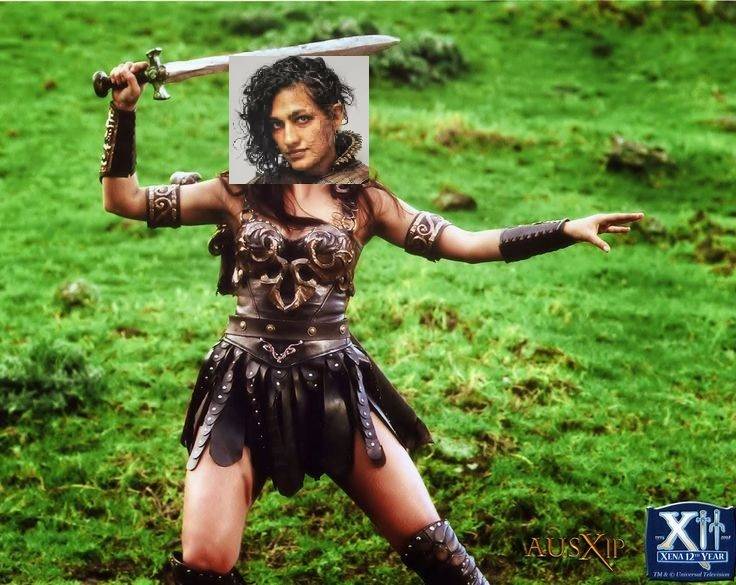Everything. But let me elaborate on it.
The other day we started watching the Foundation series by Apple. When the opening credits started, I sighed and asked, “Oh, is it new?” Something in my intonation made Ian laugh. He said that not everything that’s new is bad.
Well, so far it’s not good either. This specific show is very woke, it performed virtual gender reassignment on at least two important characters and also colored them. White characters are so far a minority and are either bad or weird, or robots. I think it’s racist.
The plot quickly demonstrated all signs of terminal postmodernism. The worst thing a show can be diagnosed with. For me, it’s yet another Game of Thrones which I quit in the middle of season 2. Sorry, fans. I quit with a feeling that I’m playing a 1990-s computer game (think Heroes of Might and Magic, my dear aging millennials) with a map that can be extended indefinitely adding no new substance to the plot/main quest. It’s just infinite randomization that uses specific building blocks, e.g., five types of castles, three types of dragons, several grades of skeletons, etc. Getting back to GoT, at the point where I quit I knew that dead characters were about to start resurrecting. That twist was sadly predictable.
Same here. The plot that barely started to get some vague shape and substance predictably turned into nothing by the middle of the first season. Here’s another analogy to explain what I mean. In a good detective story you need to have all characters introduced early so that the audience could start guessing who the murderer is. If in the very last moment the author introduces some random guy as the villain, it’s cheating. The audience would rightfully hate a story like that. In modern TV shows similar things happens all the time. We keep meeting characters every episode, they create some random noise, an illusion of a plot to disappear or step aside without contributing much to the main storyline. I get it, without all these NPCs it would be more obvious that the plot is stagnant, predictable, if not at all non-existent. Note that action and plot dynamics aren’t the same. There are tons of redundant action scenes in modern movies. But they don’t add to the plot. They are boring and hackneyed, we’ve seen them all millions of times somewhere else. True plot dynamics can be way more subtle than saber-rattling, muscle-flexing and machine-gunning, but it takes talent or at least respect for the original in case of adaptations.
I think, despite not seeing it, I know why many loyal fans hated the end of GoT. It was a random ending that fitted none of the multitude of plausible denouements viewers tried so hard to envisage in this mess. It was just more mess to crown the whole thing. An end should be plausible, it must fit the logic of a story like the last piece fits the entire puzzle and gives you satisfaction. Here the puzzle is never actually solved, it remains a pile of random pieces hammered together by an unskilled hand. They probably share scale, palette, and size, but fail to form an ornament.
What’s worse, now and then characters in those shows make long statements that are supposed to sound deep. They don’t. They are mostly banal and misplaced. Sometimes I think that scripts have been long written by the AI. For example, Foundation is a concoction of Babylon 5, Game of Thrones, Terminator, Xena: Warrior Princess and what not. The only ingredient I’m struggling to taste in this primal soup is Azimov.
I’m an optimist though, maybe this show will manage to conquer me. It won’t take too much of them: just sticking to some point and delivering a coherent message instead of a CGI salad.



Like a lot of these Hollywood adaptations, Apple’s Foundation makes the exact opposite point the author makes! The whole point of psychohistory is that individuals don’t matter, and that going against the winds of history is futile. As if one man or woman could turn the tide against a mass of quadrillions of people… bourgeoise individual subjectivity at its finest.
You have articulated the matter quite well.
I recognized many of the thoughts as my own through the years.
Your analogy of the detective story that “cheats” seems to have become increasingly prevalent, though I have quit many genres along the way.
One of the other “cheats” are anachronisms, etc.
It depends on the subject matter whether having a pinguin on the N Pole matters, or a Word Perfect ad on a Paris bus when the plot is not intended historically. But it is important for the audience to be able to maintain their suspension of disbelief — we know it’s a story with actors and details won’t block us from identifying with the story and the characters, but if out of whack details intrude on the substance of the dynamic, it all just becomes goofy and we find ourselves on the production premise; we start to think about the authors and the process by which the production came to be and why they cast the actors, and the camera guys …